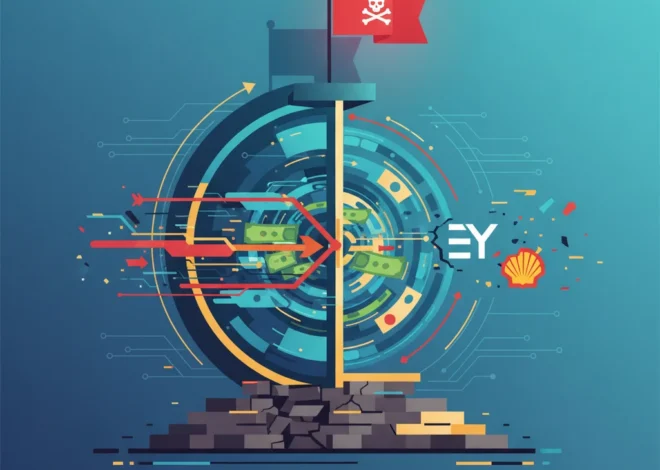
The Million-Pound Tip-Off: Is the UK Launching a Wall Street-Style War on Tax Fraud?
Imagine a single phone call, a confidential email, or a discreetly delivered file earning you a life-changing, multi-million-pound reward. This isn’t the plot of a financial thriller; it’s the potential new reality for corporate insiders and concerned citizens in the United Kingdom. In a move that could dramatically reshape the landscape of corporate compliance and tax enforcement, HM Revenue & Customs (HMRC) is reportedly on the verge of introducing a US-style incentive scheme for whistleblowers who expose significant tax fraud.
The proposal, expected to be unveiled in the upcoming Budget, signals a monumental shift in the UK’s strategy to tackle its persistent “tax gap”—the difference between the amount of tax that should be collected and what is actually received. By offering a substantial percentage of the recovered funds, the government aims to unlock a torrent of high-quality intelligence on complex tax evasion schemes that currently operate in the shadows of the global economy. This isn’t just a minor policy tweak; it’s a potential game-changer for the UK’s finance sector, a new risk factor for investors, and a wake-up call for boardrooms across the country.
In this article, we’ll delve into the mechanics of this proposed system, examine the wildly successful—and sometimes controversial—US model it’s based on, and analyze the profound implications for the UK’s economy, stock market, and the very culture of corporate governance.
The Multi-Billion Pound Problem: Understanding the UK’s Tax Gap
To grasp the significance of this proposed policy, one must first understand the scale of the problem it aims to solve. The UK’s tax gap is a staggering figure that represents a major drain on public finances. For the 2021 to 2022 tax year, HMRC estimated the tax gap to be £36 billion, or 4.8% of total theoretical tax liabilities (source). While this is the second-lowest recorded percentage, the absolute number remains enormous—money that could fund schools, hospitals, and critical infrastructure.
This gap isn’t a single entity; it’s comprised of various elements, from simple errors and failure to take reasonable care, to organised criminal attacks and sophisticated offshore evasion. It’s the latter categories, often involving vast sums and complex international structures, that are the hardest for tax authorities to detect without inside information.
Below is a breakdown of the tax gap by taxpayer group, illustrating where the shortfalls originate.
| Taxpayer Group | Estimated Tax Gap (2021-2022) | Percentage of Total Gap |
|---|---|---|
| Small Businesses | £14.0 billion | 39% |
| Large Businesses | £7.9 billion | 22% |
| Criminals | £6.4 billion | 18% |
| Wealthy Individuals | £1.9 billion | 5% |
| Other Individuals | £5.8 billion | 16% |
Data sourced from HMRC’s “Measuring tax gaps 2023 edition”.
Historically, the UK has relied on a discretionary system for rewarding informants, with payments being relatively modest and far from guaranteed. This new proposal, as reported by the Financial Times, would formalise and supercharge this process, creating a powerful financial motive for individuals with knowledge of wrongdoing to come forward.
The Vulture and the Stock Ticker: How Unseen Ecological Risks are Redefining Modern Finance
The American Blueprint: Lessons from the IRS Whistleblower Program
The UK’s proposal is heavily inspired by the United States’ highly effective IRS Whistleblower Program. Revitalised by the Tax Relief and Health Care Act of 2006, the US system offers informants a mandatory reward of between 15% and 30% of the total proceeds collected if the case involves more than $2 million in tax, penalties, and interest.
The results have been nothing short of spectacular. Since 2007, the program has been instrumental in recovering over $6 billion from non-compliant taxpayers, with the IRS paying out more than $1 billion in awards to whistleblowers (source). This has fundamentally changed the calculus of tax enforcement, turning insiders into the agency’s most potent weapon against complex financial crime.
The poster child for the program’s success is Bradley Birkenfeld, a former UBS banker. In 2007, he exposed how the Swiss banking giant was helping thousands of wealthy Americans evade taxes. His information led to a landmark settlement where UBS paid a $780 million fine and turned over the names of thousands of US clients. For his role, Birkenfeld received a record-breaking reward of $104 million. This single case sent shockwaves through the world of offshore banking and demonstrated the immense power of incentivising whistleblowers.
The Ripple Effect: What This Means for UK Finance, Investing, and Business
The introduction of a multi-million-pound reward scheme would send tremors through the entire UK business and finance ecosystem. The implications extend far beyond the tax affairs of a few ultra-wealthy individuals or corporations; it represents a systemic shift in risk and accountability.
For Investors and the Stock Market
For those involved in investing and trading on the stock market, this policy introduces a new and potent form of governance risk. A credible whistleblower claim against a publicly listed company could trigger a major HMRC investigation, leading to significant financial penalties, reputational damage, and, consequently, sharp stock price declines. Analysts and fund managers will need to incorporate this “whistleblower risk” into their due diligence, scrutinising corporate tax practices and governance structures with even greater intensity. The very threat of a financially motivated insider could act as a powerful deterrent, forcing companies towards more transparent and conservative tax strategies.
For Banking, Financial Technology (Fintech), and Trading
The banking and financial services sectors, often at the heart of complex international financial flows, will be on the front line. Employees at banks, investment firms, and even burgeoning fintech companies are uniquely positioned to observe irregularities in transactions and structures. The promise of a life-altering reward could persuade individuals in high-stakes trading environments or financial technology development to report suspicious activities they might have previously ignored. This could be particularly relevant in the world of crypto-assets and decentralised finance, where regulatory oversight is still evolving and the potential for sophisticated tax evasion is high.
Beyond the Ballot: Decoding the Economic Stakes in New Jersey's Populist Showdown
For Corporate Governance and Business Leaders
Perhaps the most significant impact will be felt in the boardroom. The C-suite and boards of directors will face immense pressure to ensure their organisation’s tax affairs are beyond reproach. This goes beyond mere compliance; it necessitates a cultural shift. Companies will be incentivised to strengthen their internal whistleblowing channels, creating an environment where employees feel safe and empowered to raise concerns internally first. Proactive risk management, robust compliance frameworks, and a “tone from the top” that champions ethical behaviour will no longer be optional corporate jargon but essential survival tools in this new landscape.
The Future of Enforcement: Could Technology Play a Role?
As HMRC gears up for this new chapter, technology will inevitably play a crucial role. The world of finance is increasingly digital, and so is the world of financial crime. The rise of financial technology and blockchain presents both challenges and opportunities for tax enforcement.
On one hand, cryptocurrencies and decentralised finance (DeFi) can be used to obscure transactions and create complex, cross-border evasion schemes. On the other hand, the inherent transparency of many blockchain ledgers, combined with advanced data analytics, can provide investigators with an unprecedented ability to “follow the money.” A knowledgeable whistleblower could provide the key—a wallet address, a transaction pattern—that allows HMRC’s data scientists to unravel an entire network of illicit activity.
Furthermore, fintech solutions could emerge to support whistleblowers themselves, offering secure platforms for evidence submission and communication with authorities. The intersection of a financially motivated human source and powerful analytical technology could create a formidable force against tax fraud, driving a new era of transparency and compliance in the UK economy.
Beyond the Ivory Tower: How 'Altmetrics' Are Redefining the Impact of Financial Research
Conclusion: A New Era for Tax Justice?
The UK stands at a crossroads. The decision to implement a US-style whistleblower rewards program is more than a fiscal strategy; it’s a statement of intent. It signals a move towards a more aggressive, intelligence-led approach to closing the multi-billion-pound tax gap that has long plagued the nation’s public finances.
If implemented thoughtfully, the scheme has the potential to uncover billions in hidden revenue, level the playing field for honest taxpayers, and drive a profound, positive shift in corporate behaviour. It empowers individuals to become agents of accountability and puts a clear price on silence for those who facilitate or ignore financial misconduct.
However, the path is fraught with challenges, from managing the operational burden to mitigating unintended social and corporate consequences. The upcoming Budget announcement will be a critical moment for the UK’s financial and business communities. All eyes will be on the Chancellor to see if this bold gamble on incentivised justice will pay off, ushering in a new, more transparent chapter for the UK economy.


